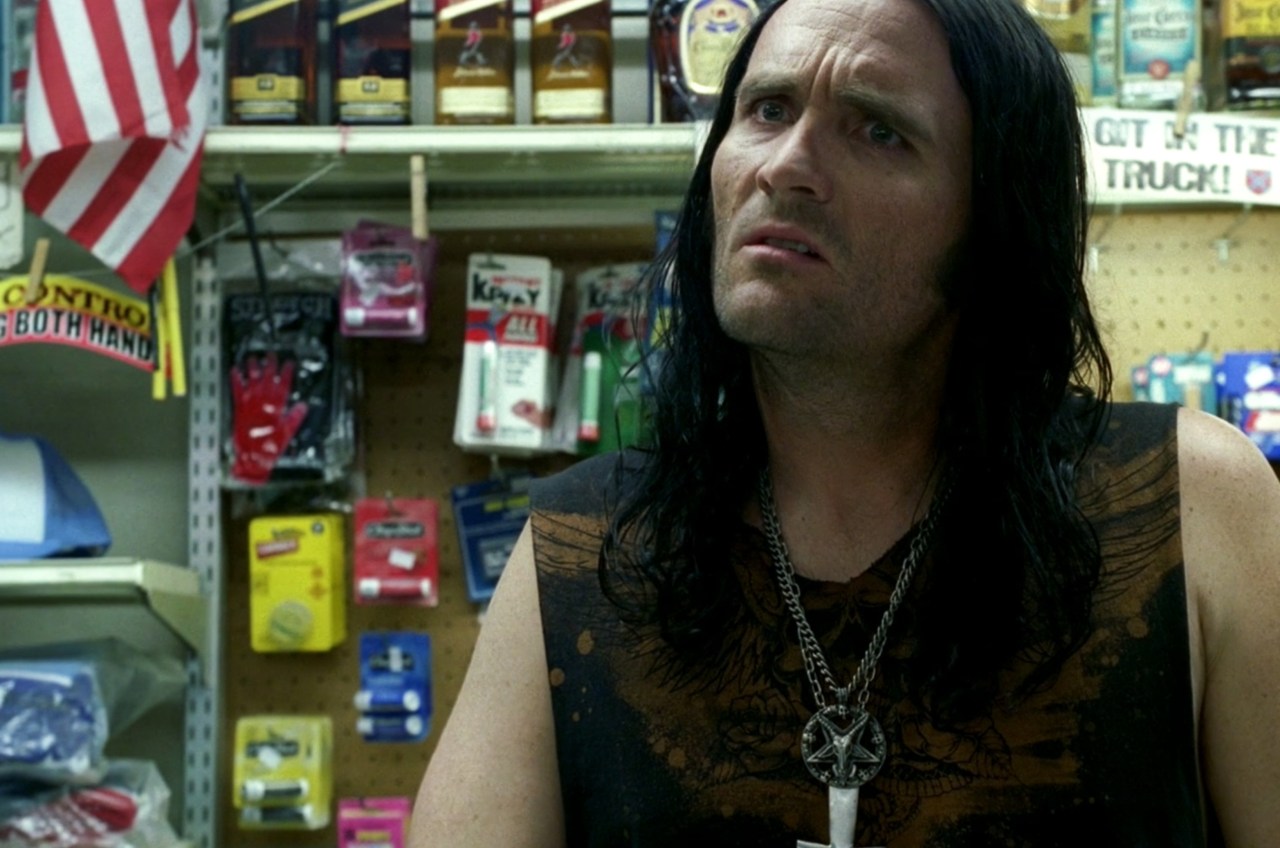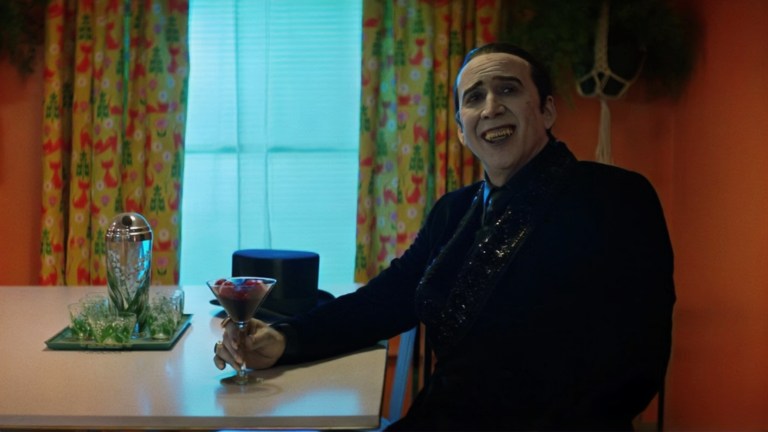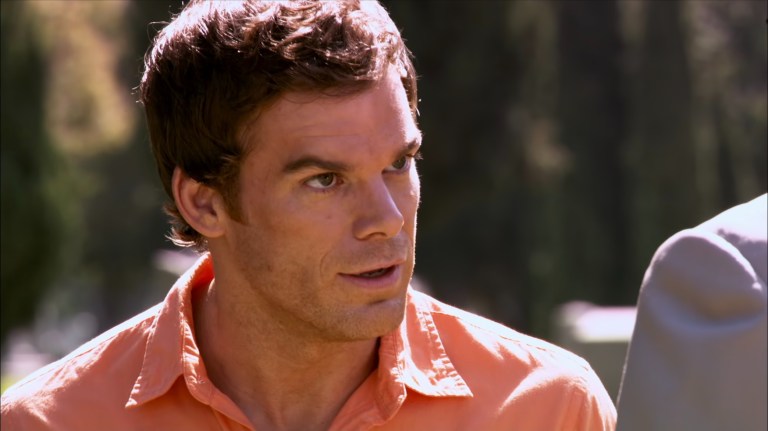
A Less Bloody Ethics: On ‘True Blood’
The ads for True Blood play on this: “Thou shalt not crave they neighbor.” But of course we do crave each other –– for love, sex, money, nurturing, healing, playing. The dictum of the ad is ambivalent, a supersession of the known moral code. Yes, it tells us, there is an ethics. But they are…
One can respond any number of ways to Alan Ball’s True Blood on HBO. There’s no doubt it’s a tad silly and this can either turn you on or off. So be it. But while I was initially inclined towards such suspicion, I have come not just to enjoy but to appreciate the intelligence and complexity of the show. It is a show about ethics.
The very first scene of the very first season grabbed my attention. A college-aged couple is driving down some back road, goofing around, when they spot a roadside sign for “True Blood,” which turns out to be a Japanese-made synthetic blood for vampires — saving said vampires the uncomfortable social and ethical position of eating human beings. This is already peculiar and potentially interesting.
But it’s what happens next that caught me. The youth walk in excited, eager to confront a vampire. The man working there looks the part: tattoos, long black hair, menacing. And he pretends to be a vampire, speaking with a thick accent of some sort. Meanwhile, some fat middle-aged guy in a camouflage jacket and a baseball cap is shopping, presumably for beer. When the would-be vampire reveals his put on — the accent is fake; he laughs — the “redneck” flashes his fangs. He wasn’t shopping for beer; he was shopping for True Blood.
Why do I like this so much? Because it let us all know, from the get go, that the expected order of things would not prevail, that the order of things can be reversed. And as any reader of Nietzsche knows —ok, we’re not all readers of Nietzsche but we should be — reversal is not simply a matter of turning things upside down. It’s a matter of fundamentally shifting the terms of engagement.
I have thought and written about vampires. Well, not the vampires that now dominate the cultural milieu but the vampiric nature of corporations and capitalism: they take — and need — human vitality to drive their ends.
But the image of the vampire Alan Ball gives us is more complex. While vampires do indeed feed on human vitality to serve their own ends, their own blood turns out to be of tremendous value to human being. It heals, physically and psychically, as it is a powerful psychedelic drug. This vampire relationship is not one-way: it is an exchange, and a bloody one at that.
And this complexity drives the show as we confront permutation after permutation of this exchange. The show is rife with complex human relationships — the endlessly complicated, multivalent play of need and desire that flourishes between human beings. The complexity of family — Tara and her alcoholic mother; Sookie and her brother, Jason; Sookie and Lafayette. The complexity of friendship — Sookie, who can read the minds of her friends, and everyone she knows. The complexity of love and desire — the unrequited love between Sam and Sookie; Sookie and her love for vampire Bill; Jason and his diverse relationships. The complexity of employer and employed — Sam and his staff. The complexity of power between vampires who, it turns out, have a highly codified ethics.
Through all of these — and others, too — we confront the contractual terms of any relationship, the ever-negotiated give and take. How much does a mother give? What is incumbent upon the daughter to return? What are the limits of what an employer can expect? At what point does a lover’s giving become too much? How much can the loved demand of a lover when said love is unrequited?
This is what True Blood is about: the impossible calculus of human relations. The show does not offer a fixed moral stance; there is no right and wrong. There, are, however, clear limits of decency: pure vampirism is frowned upon.
What True Blood argues for is the fluidity of human relations and the beauty and pain and glory of the endless give and take that defines our every exchange with others. Ethics — the terms of exchange between us — are not strict and moral. Ethics, True Blood tells us, are a matter of negotiation. Bloody at times, perhaps, but such is human — and non-human — existence.
And as Nan Flanagan, the spokesperson for the Vampire League of America, often reminds us, humans have killed millions in the name of moral certainty. The ads for True Blood play on this: “Thou shalt not crave they neighbor.” But of course we do crave each other — for love, sex, money, nurturing, healing, playing. The dictum of the ad is ambivalent, a supersession of the known moral code. Yes, it tells us, there is an ethics. But they are not certain or fixed because human relations are contractual and complicated. Ball hence gives us a different order of things, a perhaps less bloody ethics: endless negotiation. ![]()











